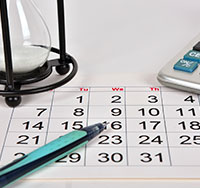Time Management Tips Tuesdays – Productivity: Putting Your Best Brain Forward

Get to Know Your Internal Clock
Our work cultures are based on a 9-5 (or 8-6, or beyond) workday. But our brains don’t work that way. You may do you best thinking and writing in the early morning. Or after a child’s bedtime. As we age, our internal clocks change.
Get to know your internal clock, and how you’re feeling, and set up your work times for maximum productivity. If early morning is when you’re at your sharpest for writing and proofreading, block that time where possible for that task. If you are groggy around 3pm (and a healthy snack, walk or other efforts can’t shake it), perhaps that’s a good time to focus on lower-power work, such as responding to routine emails.
Play to your brain’s strengths, respect its down time, and get more done.
Decision fatigue is real
Our brains have limits. We have cognitive load limits. We also experience decision fatigue. There’s a limit to how much our brains can absorb, our working memory can only take in so much at a time. If your brain is overloading from recent activities such as a difficult conversation, a stressful court appearance, or having to make a bunch of important decisions, it may not be the best time to turn to key decision-making activities. Give your brain a rest.
Get to know your stress responses
We all have stress responses. Get to know yours. That’s easier said than done. Look for the underlying cues, such as feeling defensive, feeling your body’s tensing up or uncomfortable, feeling like you’d rather be anywhere than where you are at the moment, or feeling like we don’t want to deal with something right now. You may experience different feelings.
We’ve all heard about “fight or flight” responses. The key is to know how you react in stressful situations. For example, if you’re self-aware, and know that:
You typically are conflict avoidant, or try to push off difficult conversations, try to schedule them in. You can then take time to prepare what you will say and how you will say it. You can make sure that you have a few minutes before the meeting in your calendar to prepare and breathe.
You often get defensive when stressed, try to take a deep breath before you engage. Take a few minutes before pressing send on strongly worded emails.
You don’t have to work on these issues by yourself. Mental health resources including the Member Assistance Program are available.
Next week we’ll share some tips to fight procrastination (if we get around to it). Subscribe to AvoidaClaim.com to have the post emailed right to you.

Leave a Reply